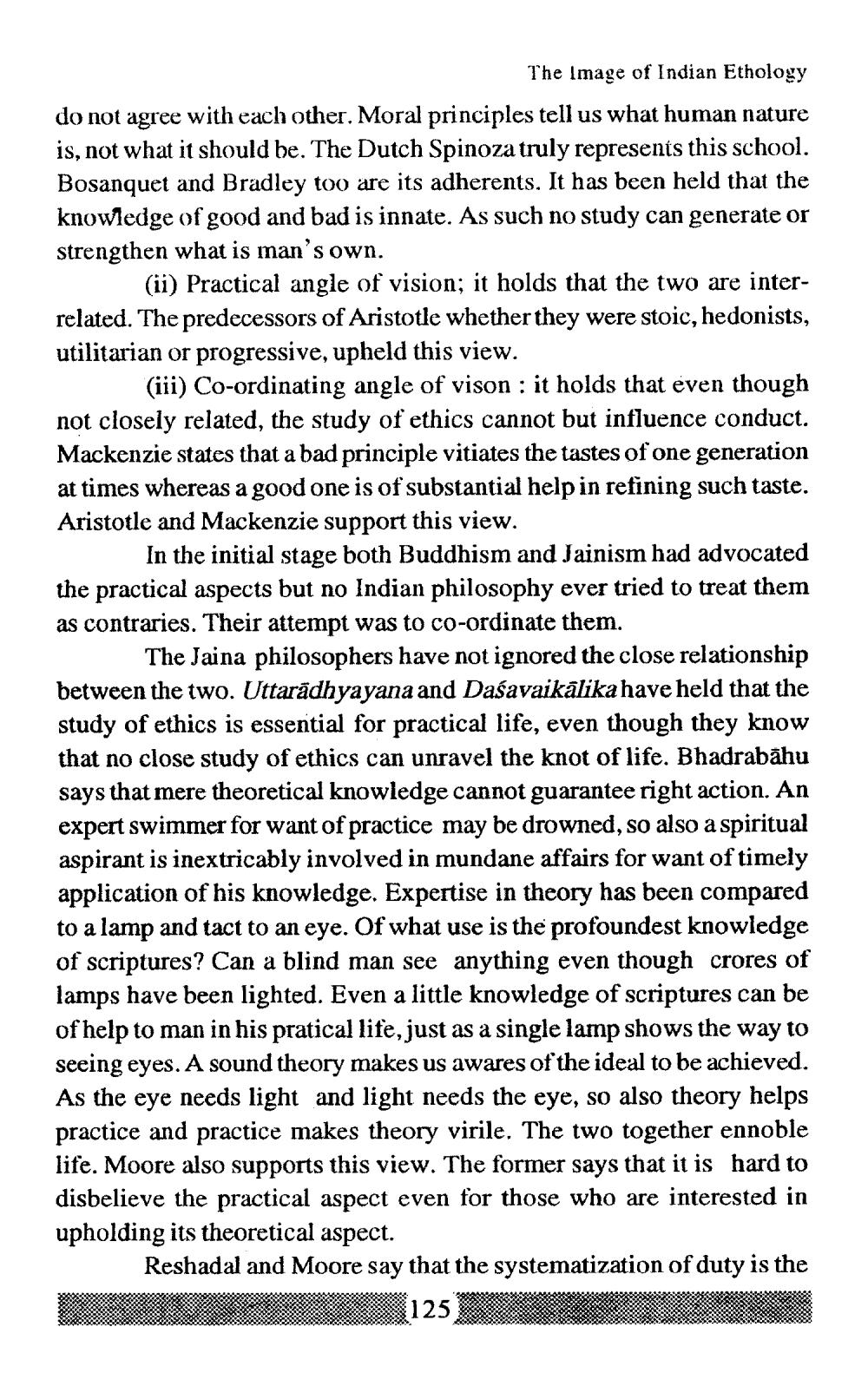________________
The Image of Indian Ethology do not agree with each other. Moral principles tell us what human nature is, not what it should be. The Dutch Spinoza truly represents this school. Bosanquet and Bradley too are its adherents. It has been held that the knowledge of good and bad is innate. As such no study can generate or strengthen what is man's own.
(ii) Practical angle of vision; it holds that the two are interrelated. The predecessors of Aristotle whether they were stoic, hedonists, utilitarian or progressive, upheld this view.
(iii) Co-ordinating angle of vison : it holds that even though not closely related, the study of ethics cannot but influence conduct. Mackenzie states that a bad principle vitiates the tastes of one generation at times whereas a good one is of substantial help in refining such taste. Aristotle and Mackenzie support this view
In the initial stage both Buddhism and Jainism had advocated the practical aspects but no Indian philosophy ever tried to treat them as contraries. Their attempt was to co-ordinate them.
The Jaina philosophers have not ignored the close relationship between the two. Uttarādhyayana and Daśavaikälikahave held that the study of ethics is essential for practical life, even though they know that no close study of ethics can unravel the knot of life. Bhadrabāhu says that mere theoretical knowledge cannot guarantee right action. An expert swimmer for want of practice may be drowned, so also a spiritual aspirant is inextricably involved in mundane affairs for want of timely application of his knowledge. Expertise in theory has been compared to a lamp and tact to an eye. Of what use is the profoundest knowledge of scriptures? Can a blind man see anything even though crores of lamps have been lighted. Even a little knowledge of scriptures can be of help to man in his pratical life, just as a single lamp shows the way to seeing eyes. A sound theory makes us awares of the ideal to be achieved. As the eye needs light and light needs the eye, so also theory helps practice and practice makes theory virile. The two together ennoble life. Moore also supports this view. The former says that it is hard to disbelieve the practical aspect even for those who are interested in upholding its theoretical aspect. Reshadal and Moore say that the systematization of duty is the
125




